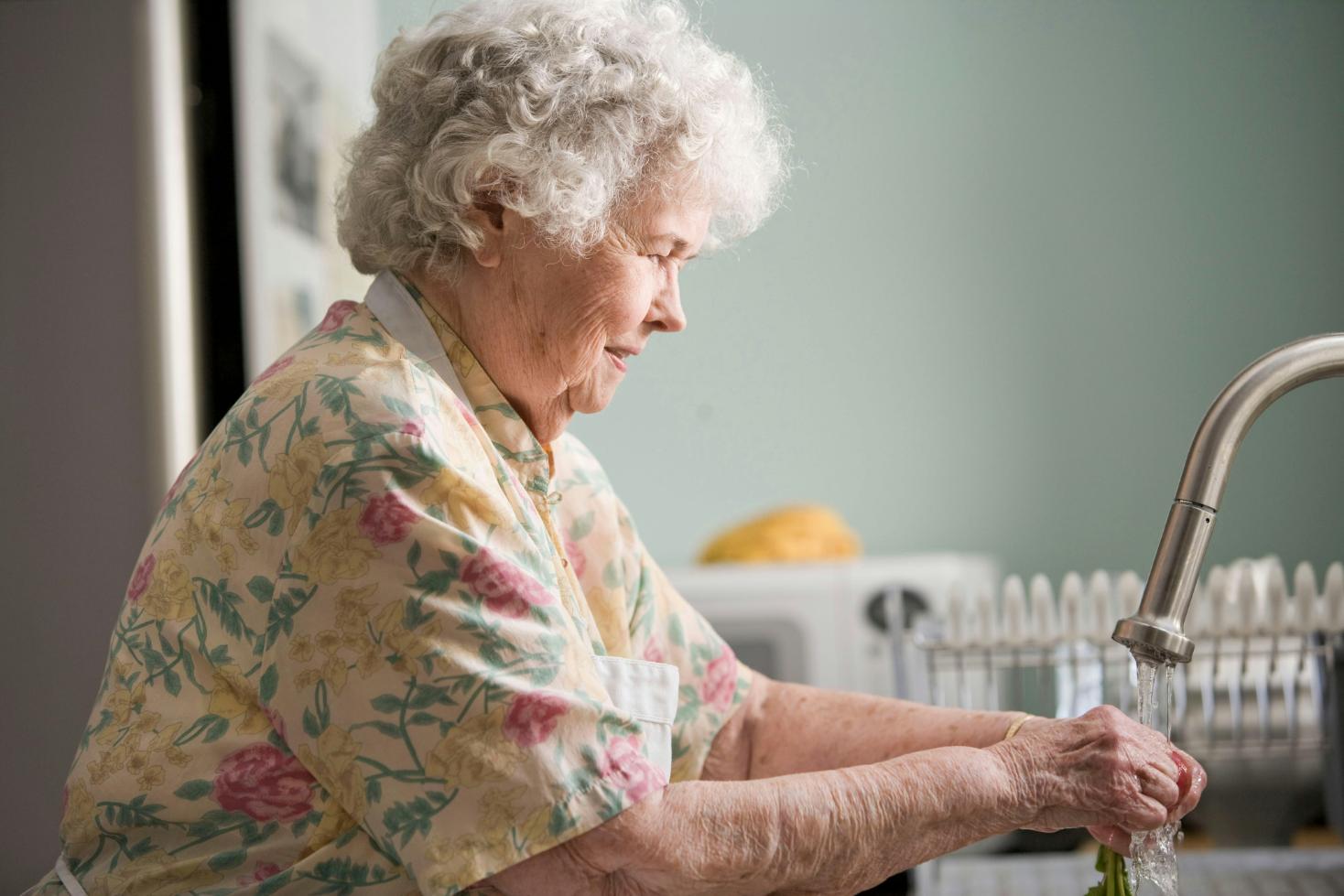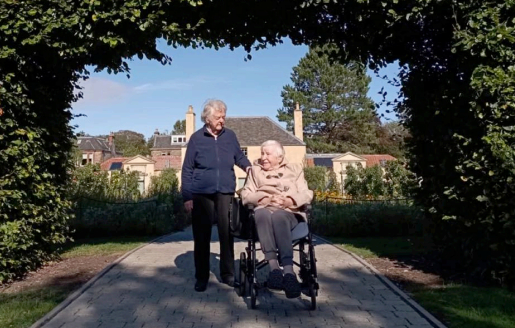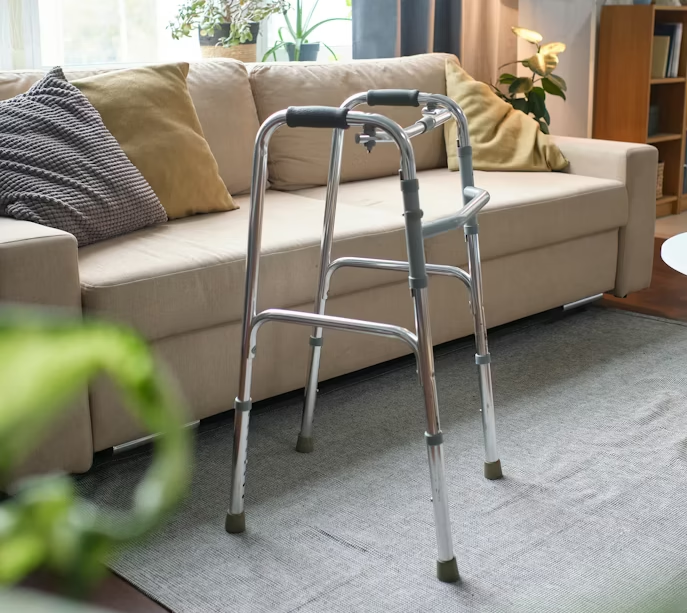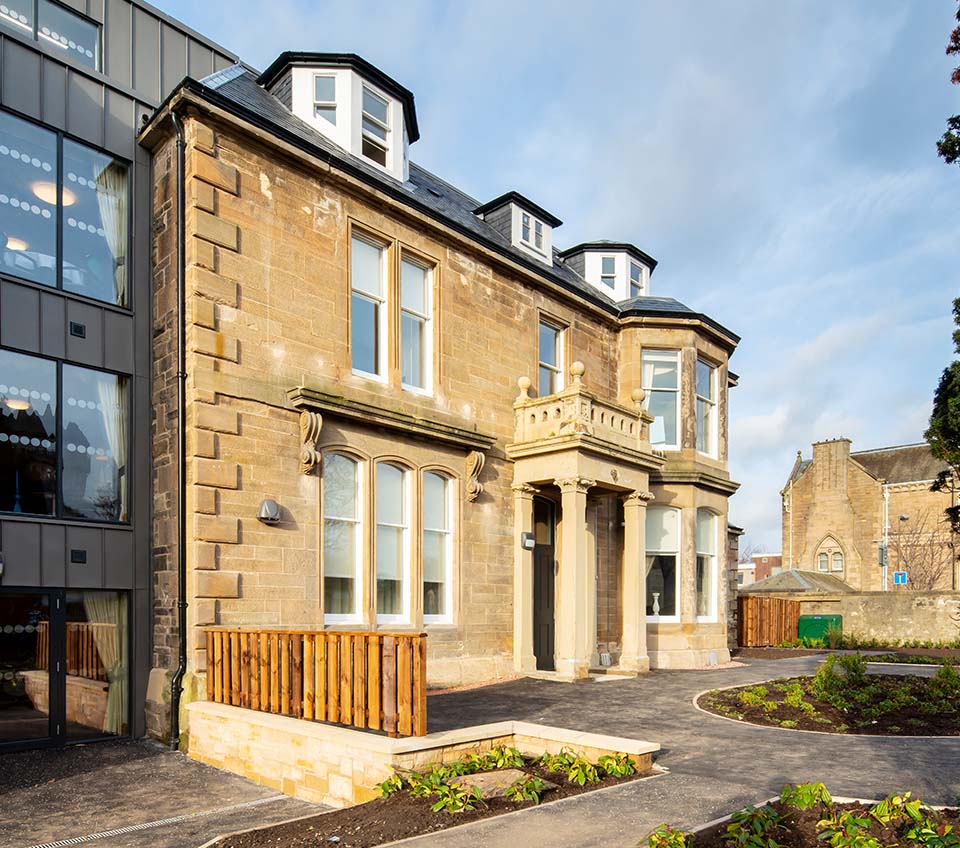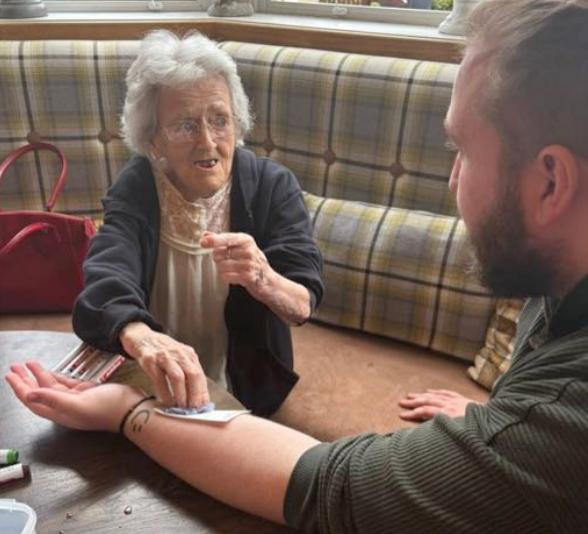Top 15 Summer Activities in a Nursing Home
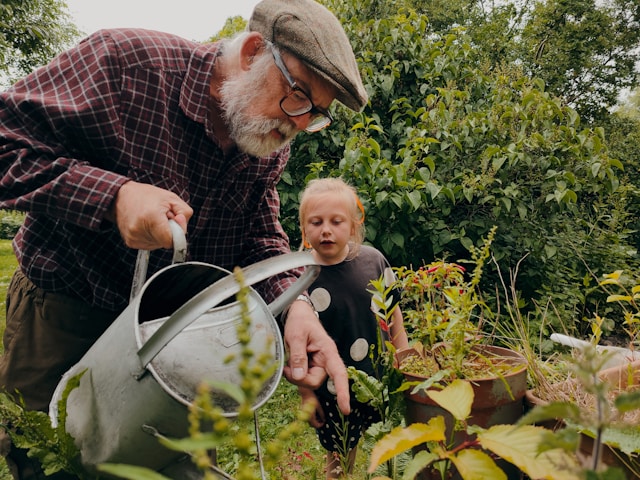
Every day in a nursing home can be full of life, if the right care and attention are given to the little things that matter. A walk in the garden. A familiar song. A laugh over a board game. These everyday moments help residents stay connected, confident, and comfortable, especially as age increases and needs change.
At an excellent care home, activities aren’t just a nice extra—they’re central to how the care team supports our residents. From structured group events to quiet, personal one-to-one time, everything is designed to support both well being and individuality.
Why Activities Matter in Later Life
As people grow older, staying active helps more than just physical health. The right activity can stimulate cognitive function, ease feelings of loneliness, encourage regular movement, and support independence with everyday tasks and personal care. Meaningful activity can also boost self-confidence and emotional balance, while giving residents more opportunities to stay in touch with family members and form stronger friendships with other residents.
We’ve seen firsthand how even the simplest routines—watering a plant, kneading bread dough, or reading aloud—can help older people feel more like themselves. This becomes especially important in later life, when purpose and routine offer comfort and stability.
What Are Person-Centred Activities?
The gold standard in care to use a person centred approach for all activities. This means carers design every schedule around the preferences, needs, and life stories of each individual, not just a one-size-fits-all calendar. Activities coordinators takes the time to get to know each resident personally, often speaking with families and care staff to understand their hobbies, background, cultural values, and current abilities.
That might mean encouraging a former teacher to lead a reading group, helping a lifelong gardener pick which plants go into raised flower beds, or creating familiar sensory activities for a resident living with dementia. This approach creates more than just a varied day. It helps each resident feel respected, and supported in ways that reflect their identity and lifelong interests. That’s why person centred activities are such an important part of how we support mental wellbeing and confidence in later life.
How Activities Are Organised in a Care Home
Planning daily life in a care home takes time, attention, and a deep understanding of each resident’s needs. That’s where an activities coordinator comes in. They’re responsible for designing a balanced weekly calendar that includes both group and one-to-one activities, tailored for people with different levels of mobility, health conditions, and personal preferences.
They also work closely with carers and nurses to ensure that each activity supports overall health care goals, whether that’s encouraging gentle movement, improving mood, or creating time for social interaction. Entertainment visits, pet therapy, arts and crafts, and quiet sessions are all thoughtfully scheduled, making sure each resident has something personal to look forward to every single day. And whenever possible, family members are invited to take part.
The aim is simple: to offer structure and joy in a way that’s flexible, inclusive, and designed around real people.
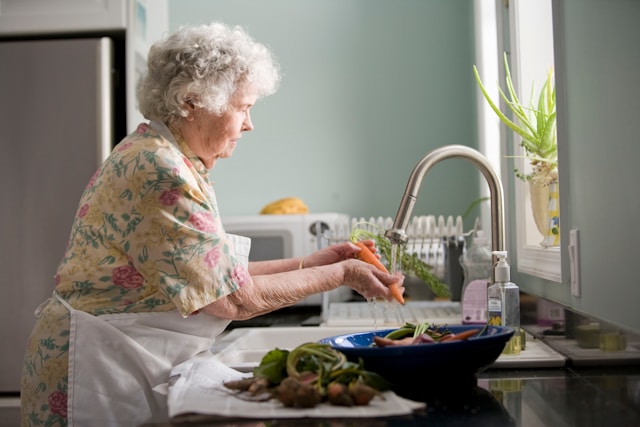
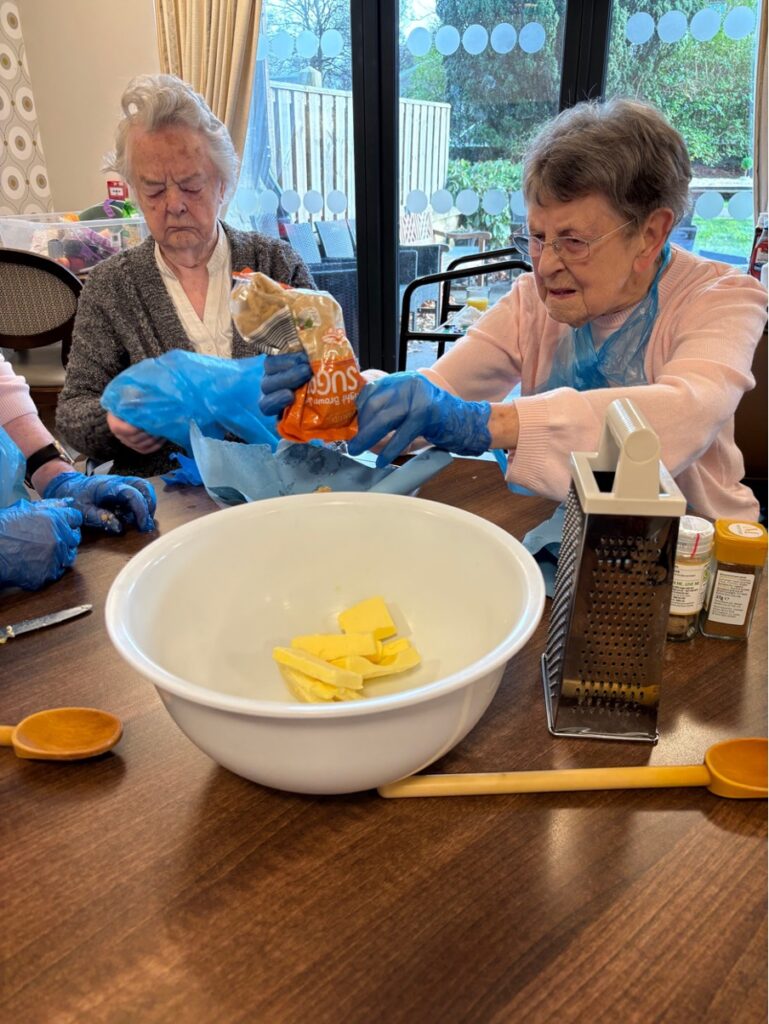
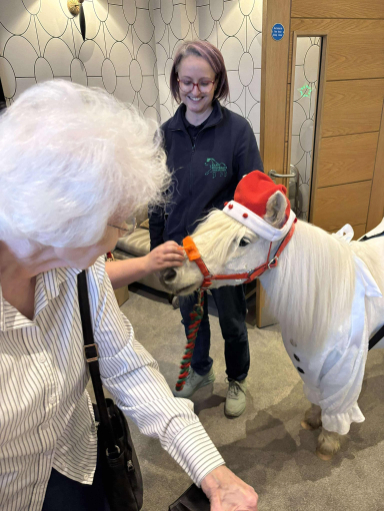
How Activities Support Health and Wellbeing
Activities in a nursing home do much more than pass the time. They can have a powerful effect on physical, mental and emotional wellbeing—especially when they are adapted to meet individual needs.
On a physical level, gentle movement sessions help to maintain mobility, improve balance, and support circulation. Spending time outdoors in the fresh air also improves energy levels and supports better sleep and mood. Simple daily tasks, like light gardening or preparing food, help to keep hands strong and coordination sharp. Mentally, activities like puzzles, quizzes, and reading groups keep the mind active and support cognitive function. Creative sessions, such as art or flower arranging, can reduce anxiety and promote a calm, focused state of mind.
Emotionally and socially, these activities foster connection. Group events encourage friendships between other residents, while pet therapy and music sessions often soothe and uplift. Time spent with family members during shared activities also helps maintain strong personal bonds.
15 Real-Life Activities Care Home Residents Enjoy
Here are some of the real activities that make a difference to daily life in a home. Each one has been chosen for how it supports both wellbeing and enjoyment, with space for everyone to take part in their own way.
1. Chair-Based Exercise
These seated movement sessions include light stretches, simple routines and small weights, helping residents to build strength, stay mobile and enjoy a sense of physical independence. The sessions are also social and often filled with laughter.
2. Art Classes and Creative Crafts
Residents can paint, draw, arrange flowers, or work with clay in our regular art sessions. These art classes offer more than creativity, they provide a sense of achievement and a way to express feelings that may be hard to put into words.
3. Music Sessions and Singalongs
Live music and singalongs are often the highlight of the week. Music can unlock memories, lift spirits, and bring people together—even when words are difficult to find.
4. Baking and Cooking
Whether decorating cupcakes, preparing sandwiches or rolling dough, these kitchen activities feel familiar and comforting. The smells, textures and tasks can bring back vivid memories and create joy in the moment.
5. Time in the Garden
Residents are encouraged to spend time outside when the weather allows—watering plants, picking herbs, or simply relaxing in the sun. These peaceful moments in the fresh air are good for both physical and mental health.
6. Pet Therapy
Visits from therapy animals, or time spent with a resident pet, provide warmth and companionship. Stroking a dog or watching a cat snooze nearby can be surprisingly calming and deeply comforting.
7. Reminiscence Sessions
These sessions use old photographs, music, or objects from the past to spark conversation and memory. They are especially valuable for residents living with dementia, offering a safe and meaningful way to connect.
8. Games and Puzzles
Board games, jigsaws, and word puzzles are more than just fun. They encourage conversation, help maintain cognitive function, and give residents a chance to engage their minds in a relaxed and enjoyable way.
9. Afternoon Teas and Coffee Mornings
We regularly host tea parties and coffee mornings, often with seasonal themes. These relaxed gatherings help residents and family members stay connected and make shared memories.
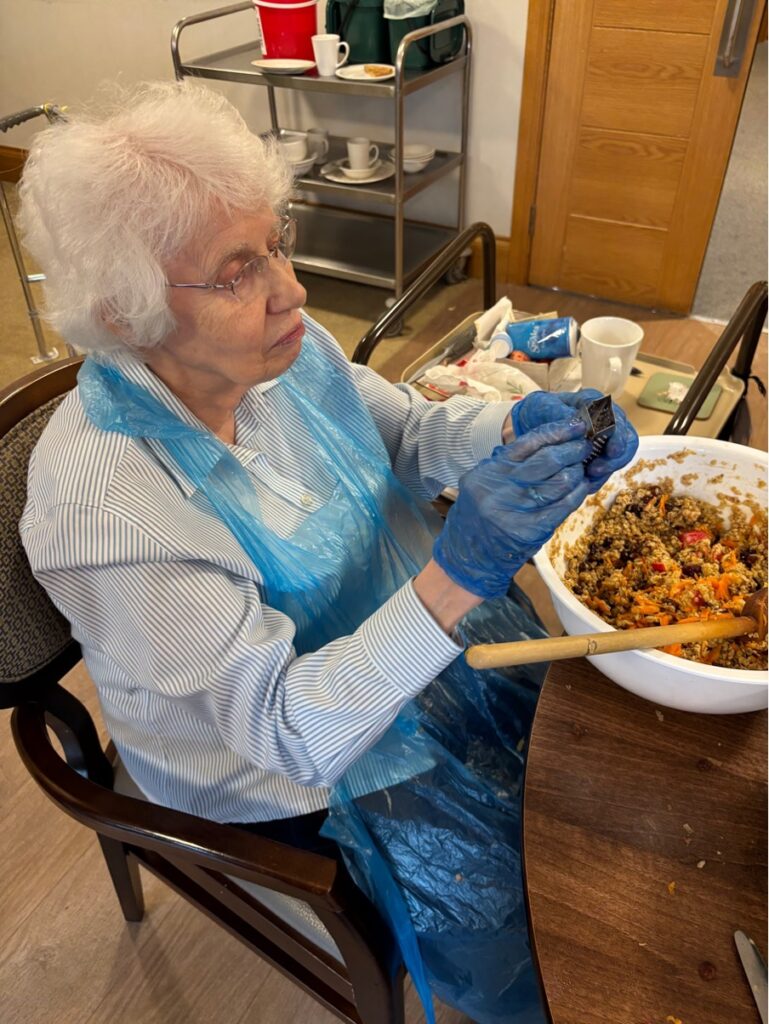
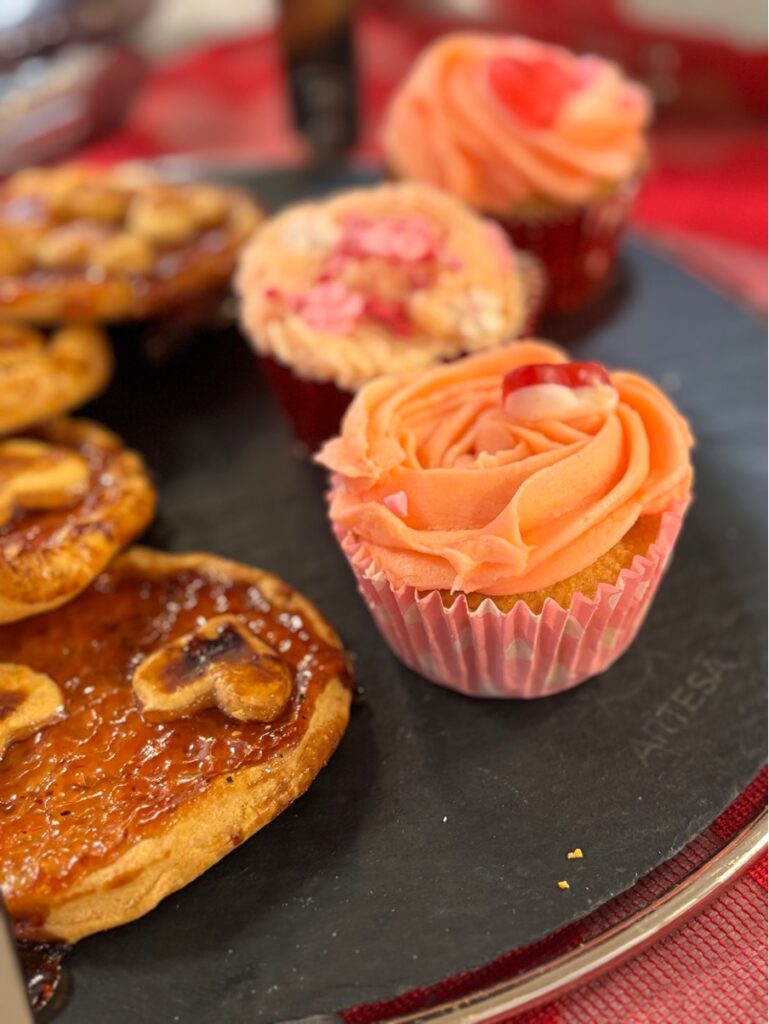
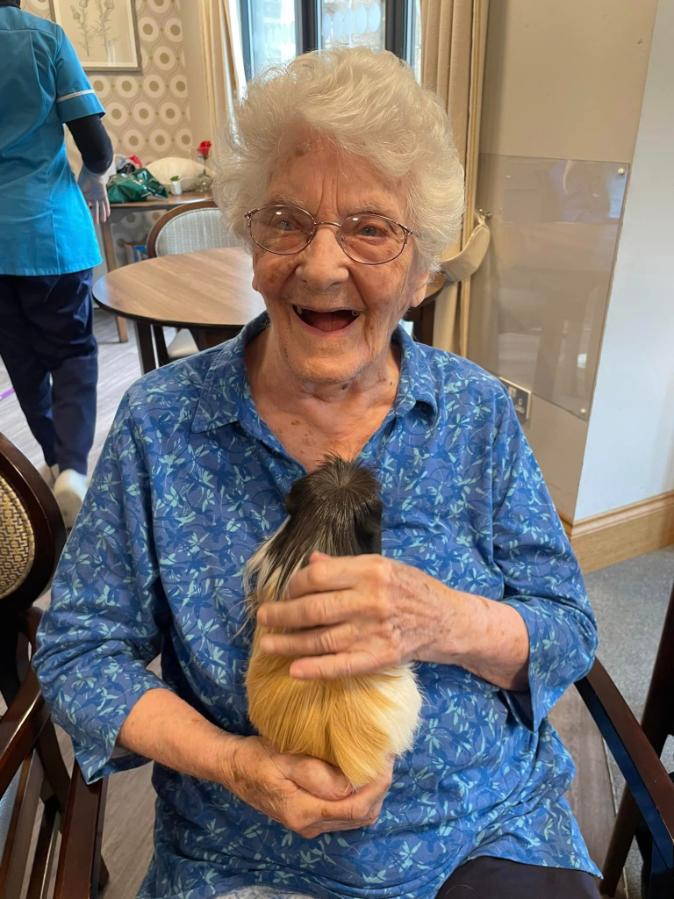
10. Reading and Storytelling
Residents who enjoy books can join reading groups or storytelling sessions. Whether it’s classic poetry, news articles or family tales, these moments bring calm and create a space for reflection.
11. Seasonal and Cultural Events
From celebrating royal occasions to enjoying summer fairs, our themed events bring colour, music and conversation to the calendar. They offer everyone something to look forward to and take pride in.
12. Gardening
Even simple tasks like planting seeds in raised beds or tending to potted herbs bring pleasure and a sense of purpose. Gardening helps residents feel involved and gives them something to nurture.
13. Film Screenings
Whatever the weather homes can host regular movie afternoons, where residents choose the film and enjoy snacks while watching. These familiar films often spark great conversation and shared nostalgia.
14. Quizzes and Trivia
Residents enjoy both the challenge and the fun of trivia games. Whether testing general knowledge or music facts, quizzes are a great way to stay mentally sharp and encourage interaction.
15. One-to-One Time
Not all activities need to be in a group. Carers often spend quiet time with individual residents, perhaps through a walk, a chat, or simply sitting together. These moments of personal attention are often the most meaningful.
What Makes Our Approach Different at Trinity House
What sets us apart is how we make activities for our residents really personal. We don’t just plan a list of things to do—we listen first. Every event, session or moment is designed with real people in mind. That means taking the time to understand each resident’s life story, preferences and changing needs, then building activities around them.
Our approach is guided by experienced activities coordinators, informed by families, and supported by our wider health care team. If you'd like to get a better idea of our day to day routines at Trinity House Care Home, please get in touch to book a private tour.
